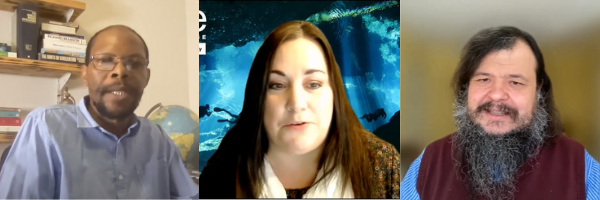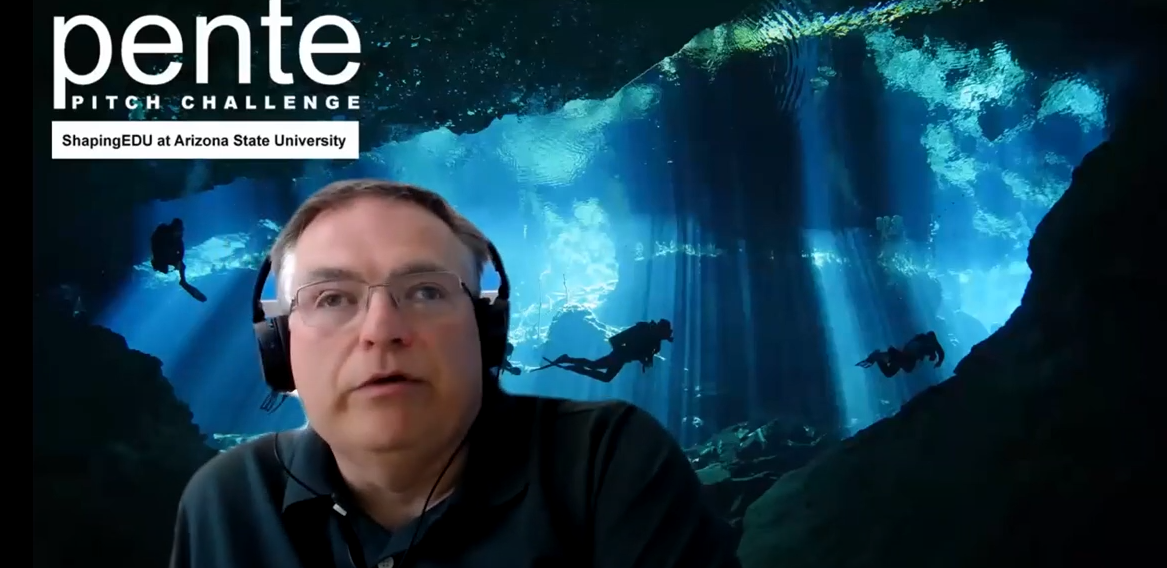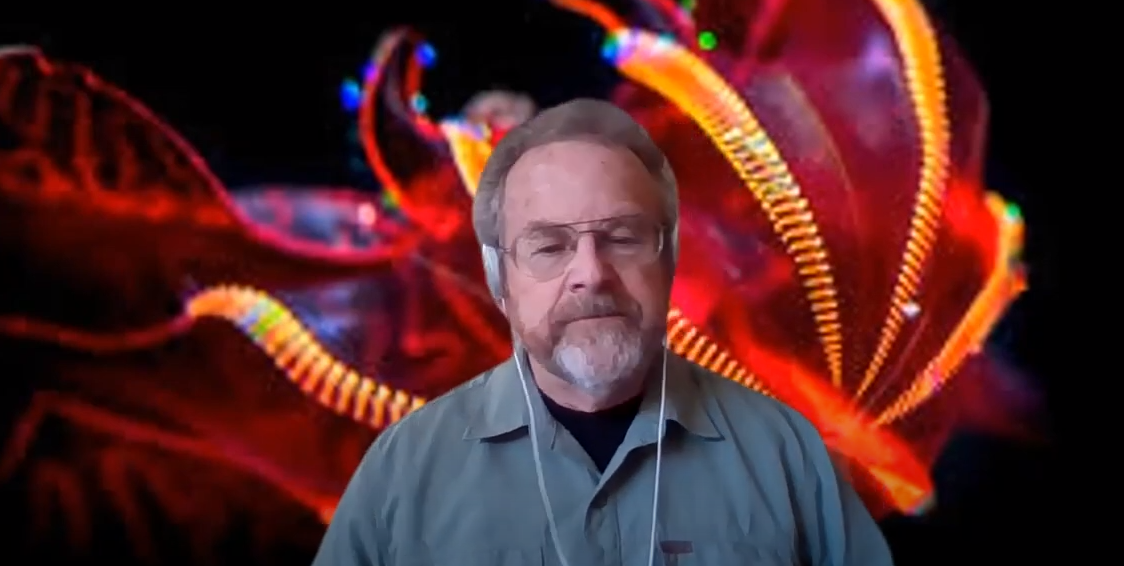
Educators share honest stories of pandemic-era teaching, training and learning at ShapingEDU LIVE
Stephanie Jeanine King
—
For many education changemakers, the COVID-19 pandemic era has been filled with navigating both highs and lows. But how and where can they effectively articulate the positive and negative outcomes of teaching during a global pandemic? That’s exactly why ShapingEDU invited educators to gather virtually for Capturing Our Stories: Successes and Challenges in Pandemic Teaching & Learning on Thursday, January 28.
From left to right: Tula Dlamini, Lisa Koster and Ruben Puentedura, Ph.D.
The event was hosted by ShapingEDU Community Leaders Tula Dlamini from South Africa, Lisa Koster from Canada, and Ruben R. Puentedura, Ph.D. from the United States, who are members of the ShapingEDU Action Team, Are We There Yet? Capturing the Evolving New Now in Learning. This project started as a result of ShapingEDU’s 2021 Unconference, when ShapingEDU Community members from around the world were invited to collaboratively reshape Wicked Problems (complex problems that are difficult to solve because of incomplete, contradictory, and changing requirements) in education to shape the future of learning. This growing team has been meeting regularly since July 2021 to discuss how best to address mid- and post-pandemic education challenges, and created this event to share and collect educators’ stories about their own experiences and key learnings. “Since the ShapingEDU Unconference last year, what has become clear to me is that the challenges facing education are the same globally, and so are the stories emerging from these challenges,” explained Dlamini.
During the event, educators shared thoughtful stories on how they pivoted during the pandemic to discover aspects of their work that shifted for the better, priorities that changed, and silver linings that emerged due to the pandemic.
ShapingEDU Community Leader Tom Haymes (shown right) explained rebooting his approach to online learning and using an individualized approach allowed students to not just feel seen but heard. By setting individual meetings with students, Tom was able to figure out what their needs were when it came to digital literacy, device and internet availability and their knowledge of the material, and he’s still using this approach today. “Having that conversation is so powerful,” said Haymes. “That is something I might not have noticed otherwise.”
Ken Peterson (shown right) of the Monterey Bay Aquarium in Monterey, CA, shared how the aquarium weathered its 14-month shut down by offering online education programs. “We made a remarkably fast pivot from in-person to distanced learning, expanding the reach and
impact of our programs in ways that we never could have imagined and, in ways, will inform the course of our programs going forward,” said Peterson. After one month of the aquarium shutting its doors in March 2020, they had 10,000 students enrolled in online learning; now, nearly 50,000 students are enrolled from 95 countries and all 50 states, with courses available in English and Spanish.
Capturing Our Stories gave attendees not just a place to share their experiences, but effective tools to tell them, as well. During the event, Puentedura facilitated an activity in which he shared a storytelling template set and provided a story framework (the Story Spine approach by Kenn Adams) in order to help them gather their thoughts into a compelling story. Before drafting their story, participants were invited to create an icon for their story, as well, to shape their ideas first. The result? A share-out of thoughtful, diverse and valuable stories that allowed people to find commonalities or share their empathy for one another. View Puentedura’s slide deck
Here are just some highlights from the group’s storytelling efforts:
“We chose to pivot in a way that puts the students first. We pivoted when the need was there, but now, there’s a different set of possibilities because we’ve conditioned the expectations of our learners.” - Patricia Harris
“We were all in a storm. But we shared the empathy, the understanding, and the generosity, and I think that was key to getting us all through it.”
- Chris Ditzler
“Education can take place any time.” - Zena Brown
All educators are invited to share their stories for the Are We There Yet? Capturing the Evolving New Now in Learning project. Share your story now
Watch the full ShapingEDU LIVE event recording:


